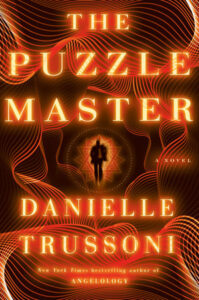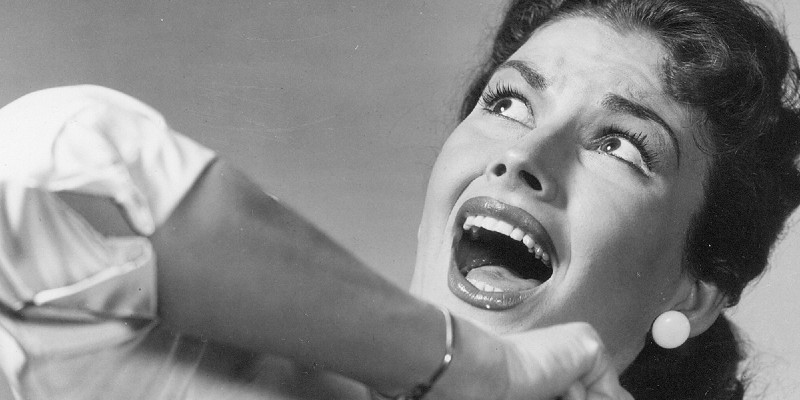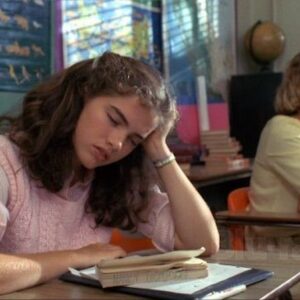What Are Thriller Writers Truly Afraid Of?
Danielle Trussoni Talks with Four Authors on How Their Fears Make it into Their Fiction
At Halloween, fear is an emotion that is universally celebrated, but for me, terror has been an ever-present source of inspiration for fiction. My fears are vast, ever-encroaching, sensual. Claustrophobia, subterranean cities, the idea of being buried alive. Falling from a great height or watching someone I love plummet into an abyss as I stand by, helpless. An ice-cold sheet of air in a dark hallway. A voice whispering through an autumn wood. These are only a few of the terrors that have shown up in my writing over the years.
My novel Angelology was my first attempt to grapple with terror in writing. I went to Catholic school, where I attended mass six times a week from the first grade on, a routine that filled my imagination with fantastical stories of water turning to wine and seas parting and angelic visitations. When I was in fifth grade, a gunman entered our church and murdered three people, including the priest. I was in the building next to the church at the time, heard the shots, and saw our principal—a nun named Sister Rose Frances—run from the church and blockade the door to the school shut. This day ended my time at Catholic school—my parents transferred me to public school for sixth grade—but even more influential on the writer I would become, it ended my connection with the stories of my childhood and left a residue of fear and anxiety around religion in general.
Twenty years later, as I wrote my first novel, I found myself drawing on that fear. The terror of the shooting reconfigured, became a source of inspiration, and made my investment in the novel deeply personal. The Biblical stories I’d grown up hearing in church became forbidden, washed through with darkness and horror, something more than simple mythologies. Using these feelings as inspiration, I wrote a thriller about an evil legion of angels called Nephilim, the bastard outcasts of the angelic choirs. By harnessing the powerful emotions of that experience, I created a novel filled with menace and mystery.
Another persistent fear of mine, one I’ve carried since childhood, is haunted dolls. I trace this fear back to an episode of Fantasy Island I watched with my younger sister about a ventriloquist and a dummy. I barely remember the show now, but it had a powerful effect on me then, one that never quite went away. The fear evolved from dummies to dolls of all kinds, and especially porcelain dolls. When I inherited a porcelain doll from my great-grandmother (pictured below), I knew I had to incorporate this creature into my fiction.
The doll became a central part of my new novel The Puzzle Master, the story of on an ingenious puzzle solver who is called to an upstate New York prison to interpret a strange cipher drawn by one of the prisoners, a woman who has been convicted of murder. Her psychiatrist believes the woman is innocent, and the puzzle can explain what really happened. As the puzzle master begins to untangle the truth, he finds that a gorgeous porcelain doll made in the 19th century carries a clue that could explain what really happened. Using the doll I inherited as a jumping off point, I researched 19th century porcelain doll construction, the history and art of porcelain, and the various aspects of haunted dolls, from Annabelle to the golem. The result was a layered novel with an unsettling backstory.
Fear is such a powerful emotion, one that has the strength to draw readers in, hook them emotionally, and allow them to feel connected to the story on a deeper level. As I was thinking about the ways in which I use fear in fiction, I wondered how other authors use their fears. I reached out to a few bestselling thriller writers to ask them about how they fear has shown up in their novels. Here’s what they had to say.
David Baldacci
Life size mannequins sort of freak me out. I’ve used them twice over the years in novels, always in an exhibit or diorama. But in each case the mannequin was actually a human body placed strategically there after the person was murdered. Ever since, whenever I go past something like that, I do so quickly, but I also examine it thoroughly as I’m going by. Just in case.
Janelle Brown
As a kid, I was obsessed with the supernatural. I devoured Lois Duncan and Steven King, I wrote every book report on ghosts and ESP and UFOs, and I spent most nights lying awake in the dark terrified of the things I couldn’t understand. I did not, however, grow up to be a horror writer. I don’t really want to spend that much time inside the world that scared me so much. And yet I’m still fascinated by those moments when we encounter the unexplainable, and how we try to make sense of them. So bits of the supernatural have found their way into my writing, especially in my novel Watch Me Disappear, which features visions, psychics, and ghosts. It’s less about trying to scare my readers than interrogating why we want to believe in the things that make us shiver.
Jean Kwok
When I was little, I was standing behind the counter of my aunt’s store in Chinatown when I found myself staring directly into the barrel of a gun. It was a Chinese mafia member collecting “protection” money. I was frozen with fear. My aunt gently pushed me down and I huddled on the floor while she paid up. Ever since, I’ve been scared of the Chinese mafia, which is probably why they play a role in terrifying my heroine Jasmine, who owes them money, in my new novel The Leftover Woman.
Ivy Pochoda
When I was little, I was afraid of empty spaces. Empty subway cars, empty train stations, empty houses. I often found myself in places like these, and didn’t do much to avoid them, but they left me with a sense of unease. An imaginative sense of possibility of all the dark things that could transpire. Even to this day, I can trick myself into hearing noises that are there. And yet I still seek out solitude. Remote cabins in the desert. Hikes on abandoned trails in northern New England. This sense of loneliness and emptiness has found its way into my fiction. My characters are often isolated from the rest of the world, whether emotionally, socially, or physically. I find that I write about remote neighborhoods after dark. Cities on lockdown during Covid. Busy thoroughfares after dark. I think there’s beauty and loneliness and isolation but also danger and anxiety. Which makes these things perfect perfection. Everything balanced on a knife edge.
________________________

Danielle Trussoni’s The Puzzle Master is available now from Random House.




















